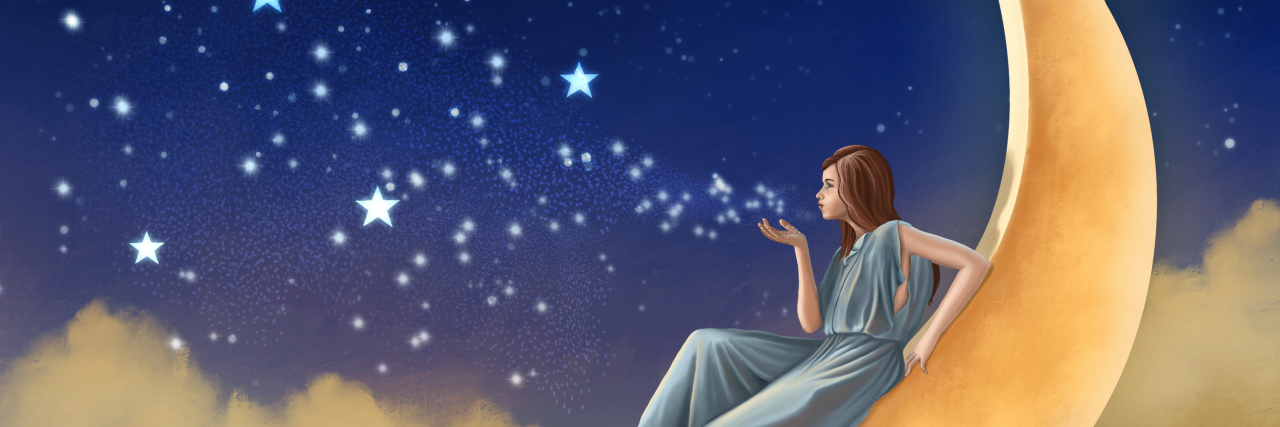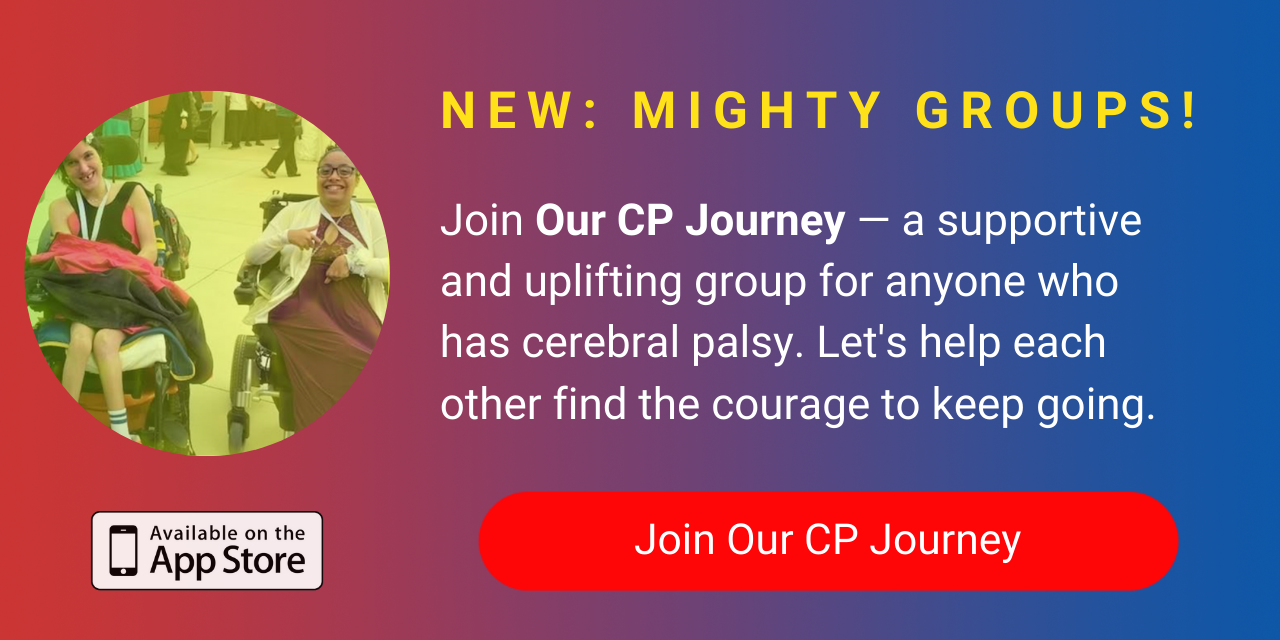My best friend’s 5-year-old daughter recently learned that her muscles are difficult to move because she has cerebral palsy. The day my friend formally introduced her daughter to her diagnosis, her daughter couldn’t wait to share the news. “Miss Kelly, I have cerebral palsy!” she proudly proclaimed over video chat. “And Mommy says you do too!”
Her confidence in knowing that her symptoms had a name that she could pronounce immediately struck me. Here was a little girl who inspired me, not because of her challenges but instead because she completely owned her cerebral palsy. I, on the other hand, hadn’t been able to feel that same pride in my disability since I was even younger than she is now.
I felt wistful remembering that tiny sliver of my life when I too could proudly announce that I have cerebral palsy. Despite prolifically writing about life with cerebral palsy online, I can barely speak my own diagnosis aloud. Speaking the words “cerebral palsy” dredges up years of shame, pain and internalized ableism — all of the emotions and memories I typically keep locked away in my heart.
But sometimes I wish I didn’t carry so much shame and fear around my diagnosis. Sometimes I wish that I could lay my entire life story on the table and speak my entire truth, even to complete strangers.
I’d tell them first that I was born with cerebral palsy. I’d explain in the most unscientific terms that my body doesn’t receive the right signals from my brain, so the left side of my body is stiff and weak. I’d reassure them that if they’re completely unimpressed with my description of CP or would like more information, I have plenty of resources for them to learn more.
I’d then launch into a full rundown of my childhood. I’d tell them about the earliest of my surgeries, the way I despised doctors so much I pretended to be “allergic” to any doctor I saw, the constant stream of therapies that were presented as “fun” but that soon made me realize I was different from my peers. I’d explain the piercing weight of children’s (and adults’) stares, the shame I felt about wearing a leg brace, the isolation I experienced when no one knew what to make of me, my resistance to being defined by my CP when it was the first thing anyone saw.
I’d explain how my last surgery changed me, how at 10 years old, I was adamant that my body was fine without another procedure. I’d teach them about the emotional toll of having surgery as a preteen, the struggle of being old enough to understand but too young to consent, the brutal lack of control I felt as I grappled with going under the knife. I’d tell them about the moment when I first experienced inaccessibility after surgery, the day that opened my eyes to the privilege I had. I’d educate them about the physical recovery, the strength I had to regain, the exercises I never wanted to do, the sense of normalcy I craved as I fought for the same life I had failed to appreciate before.
I’d tell them about the moment I stopped wearing the leg brace and started feeling like a typical 12-year-old. I’d share how the comments and stares mysteriously stopped, how I began to present as able-bodied, how I started to hide my story in order to conform. I’d explain that I finally felt free, that I delighted in my newfound able-bodiedness because I didn’t know that I was fighting internalized ableism. I’d tell them that I made friends and studied diligently and lived life unencumbered — except for the weight of my secret, my cerebral palsy.
I’d explain that I kept up this ruse for nine years, refusing any help that was offered to me and pretending that I was able-bodied even as I began to experience physical pain. I’d take them through my high school and college years, how I struggled to trust even though my friends never indicated that they’d share my secret. I’d admit that I secretly berated my body even as others praised it, that I cried myself to sleep at night because I hated living in this body so much. I’d teach them what it’s like to be 16 and constantly in physical and emotional pain without letting anyone in for comfort. I’d tell them about how I chose my words carefully in my college dorm so no one would know I was in pain, that I refused to attend physical therapy again, that I nixed the idea of a leg brace because I didn’t want my roommates to see it. After all, that would require that I bare my soul and admit that I have cerebral palsy.
I’d tell them about the post-college moments that changed everything — the months I spent struggling to find a job, the way my first temp job let me go because I couldn’t use a letter opener and that was the only work they had left, the belief I held that I would never neatly fit into any workplace because of my CP. I’d explain the depths of the fear I felt after the 2016 election, the way my disability identity felt even less “safe” than before, my burning desire to do something to tell the world my story. I’d tell them the final straw — the moment I lost my dream job opportunity because I self-sabotaged, the moment I knew I needed to open up about my cerebral palsy.
I’d tell them about those grueling days of committing my story to paper, the freeing moment when I shared with the entire internet that I’m living with cerebral palsy, the way friends and strangers alike rallied around me. I’d explain that I continued to write, to speak out, to process the shame and the fear and the internalized ableism in therapy many times over. And I’d admit that the past three years of perceived openness have still left me closed, that I have a long way to go before I can speak proudly about my disability instead of just writing proudly.
I’d tell them about the 5-year-old girl who just last week was proud and excited to share that she has cerebral palsy just like me, so it must be the coolest thing in the world. I’d share how much she reminds me of my younger self, how fervently I want to access that part of myself that sees disability as sophisticated, beautiful and magical.
But even though I don’t ever foresee myself leading with my disability and immediately sharing my entire life story with complete strangers, I know that deep in my heart, I’m content with my identity as a person with cerebral palsy. Even through the years of fear, shame and ableism, I still see the magic of living with a disability, and I want to hold onto that piece of myself for the rest of my life.
Getty image by Andreus.


